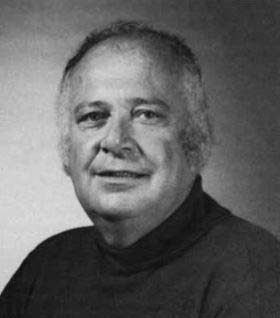Henry R. Mahler
* Deceased
Research Professor of Neurological Sciences in the Department of Psychology and in Chemistry - 1966

Henry R. Mahler was born in 1921 in Vienna, Austria. He came to the United States in 1938 and graduated with honors from Swarthmore College in 1943. As a graduate student, he worked for a year at Purdue University before attending the University of California, Berkeley, where he received his Ph.D. in 1948. After postdoctoral training at the Texas Research Foundation he worked as research assistant (1949-50) and later as assistant professor (1951-55) at the Enzyme Institute of the University of Wisconsin, Madison. He moved in 1955 to Bloomington, Indiana, as associate professor; was promoted to professor on July 1, 1957; and became Research Professor of Chemistry and Neural Sciences on July 1, 1966.
Mahler spent summers at Woods Hole, Massachusetts as a visiting investigator at the Marine Biological Laboratory. In 1957, Mahler went as visiting professor to Sao Paulo, Brazil. In 1962, he received a Research Career Award from the National Institutes of Health. In 1962-63 he was a Special Fellow at the USPHS, a visiting scientist at the Laboratoir de Genetique Physiologique du C.N.R.S. at the Institute de Genetique Moleculaire at Gif-sur-Yvette, and a visiting professor at the University of Paris. During 1976-1977, he was on leave as an honor fellow at the University College, London; as a visiting professor at Gif-sur-Yvette; and as a visiting professor at the Institut fur Allgemeine Biochemie of the University of Vienna. He was a member of many professional chemical, biochemical, and biological societies and was an elected representative of the Council of the American Society for Neurochemistry. He served on the editorial/advisory boards of several journals: Bioenergetics and Biomembranes, Subcellular Biochemistry, Advances in Neurochemistry, and Theoretical Biology. He held a continuing appointment as an honorary research fellow of the University College, London. He was appointed to the Scientific Advisory Board of the Max Planck Institut fur experimentelle Midizin at Gottingen in West Germany.
Much of Mahler's experimental work deals with mitochondria. These are small, subcellular particles which act as energy generators of the cells. Mahler investigated particularly one of these enzymes, called cytochrome b; he found that a gene for the formation of cytochrome b consists of a mosaic of polynucleotide segments and that only some of these segments (called exons) are converted into cytochrome b whereas other segments of the genome (called introns) fulfill quite different functions. Another most difficult problem attacked experimentally by Mahler deals with neurochemistry and the transmission of stimuli in the nervous system. According to Mahler's work, phosphorylation of particular proteins is essentially involved in neural function.
He passed away in 1983.

